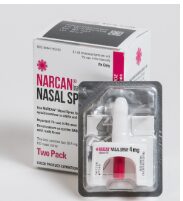Recently Buffalo Mayor Byron Brown announced the formation of a Behavioral Health Team to partner with the Buffalo Police Department in responding to police matters that are identified as mental health in nature.
Endeavor Health Services, a peer organization and a fellow member of the Value Network with Spectrum Health, received a grant to fund the project and will be the partner to provide clinical services.
In principle and in practice, we as clinicians know this is a good idea and there is evidence of the benefit. Within days of Mayor Brown’s announcement, a group of social workers organized a protest, saying the practice of pairing police officers and clinicians was irresponsible, among other things.
This is a very important and needed collaboration in our community.
As more individuals with serious mental illness live in the community in less than ideal situations with multiple challenges, this type of partnership is important for the individuals we serve, the police, and the community at large.
We have seen inpatient care down-sized even though individuals can clearly benefit from that level of treatment. We have seen the reduction of adequate residential services that could offer support in the community. In the past (without those resources), we have seen an increase in individuals with mental illness being placed in jail and not getting the adequate care they needed: recent bail reform law changed that.
All of these changes have resulted in more individuals with serious mental illness and addiction issues trying to survive in our community.
Frequently they are victims of crime but also can manifest symptoms in violence towards others or harm to themselves.
Mental Health and social workers that work in the community do so to help the most vulnerable. It is hard work and they see a lot of things most people will never see. It’s a big job and sometimes a dangerous one as well. A partnership with law enforcement can help protect the individuals we care for as well as provide support for our staff.
Many times, police officers are the ones called to interact with individuals in serious mental health trouble, who may be potentially violent towards themselves or others.
They may be experiencing serious mental health symptoms; they may be under the influence of substances and their behavior can be unpredictable. If you believe, as most experts do, that mental illness and addiction are medical conditions then both should be treated like that.
Engaging trained and prepared crisis clinicians with the trained and prepared police, will help an already overstressed and less than perfect system deal more humanely and effectively with individuals in crisis.
By Cindy Voelker
Associate CEO
Spectrum Health and Human Services



